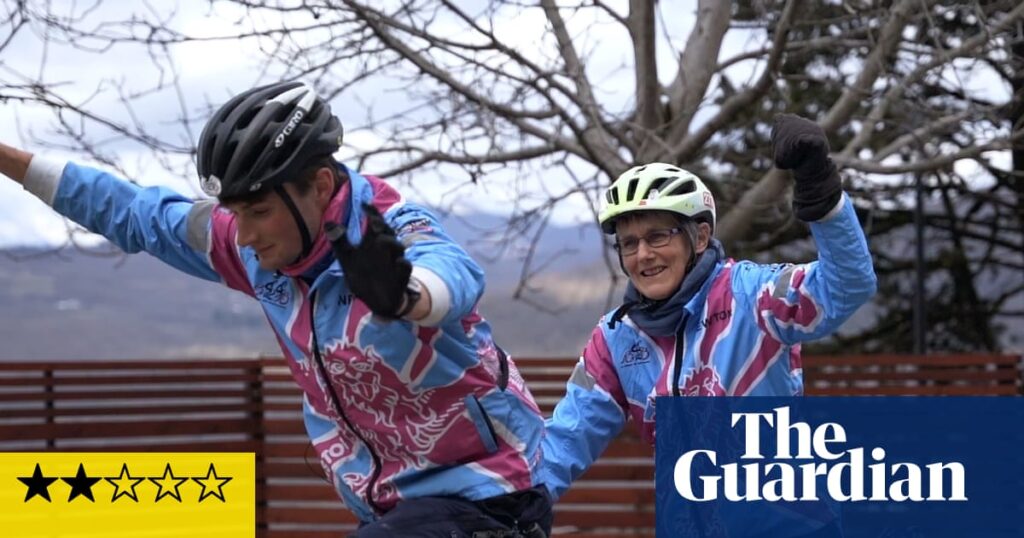Bristolian Luke Grenfell-Shaw, a keen cyclist and runner, was barely out of university and looking forward to a life of rugged adventure and sporting challenges when he discovered he had a rare form of cancer that had already metastasised to his lungs. His stage four diagnosis looked especially grim, with mutterings that he might only have months to live. But this galvanised Luke to decide to travel from Bristol to Beijing on a tandem bicycle, should he go into remission. Lo and behold, that’s just what happened, sort of, with a film crew in tow and a variety of friends and family members popping in at various points along the way to help with the cycling on the back of the bike.
Naturally, there are drama-generating hiccups to contend with, such as the Covid-19 pandemic breaking out; this meant getting into a very locked-down China at the end was tricky. On top of that, it’s revealed that Luke has a tetchy relationship with his mother, Jenny, passive-aggressive in both directions judging by what little we see. She keeps coming out to meet him in various countries to help with the cycling but over and over again, the two of them get into intense sotto voce snits with one another over careless words of criticism. It’s mentioned but quickly passed over that Luke’s dad left Jenny for another woman who promptly got pregnant, so there’s a whole other melodrama going on around the fringes of the story, semi-separate from person-with-cancer-triumphs-over-adversity main narrative.
This substrand actually makes the film vastly more interesting, especially since the film-making is riddled with televisual cliches such as soppy music and twee animation to bring in back stories of characters met along the way. Ultimately, there’s something rather annoying about Luke, with his blithe air of rich-guy entitlement and bouncy golden retriever energy. The way he describes himself and other people who have had cancer as “CanLivers” is irksome. (Luke considers “cancer survivor” insufficiently accurate given how often cancer recurs for many.)
And finally, even the way the film and Luke keep banging on about how CanLivers or survivors can accomplish amazing feats of physical endurance smacks of smugness and, paradoxically, lacks empathy. As a CanLiver myself, the suggestion that those of us who aren’t pogoing through the Andes or riding unicycles across the Sahara are lazy slackers is way off the mark. Guess what: after chemotherapy, some people barely have the energy to walk the dog; nor do they feel their misfortune is so singular they need to have a documentary made about them.


